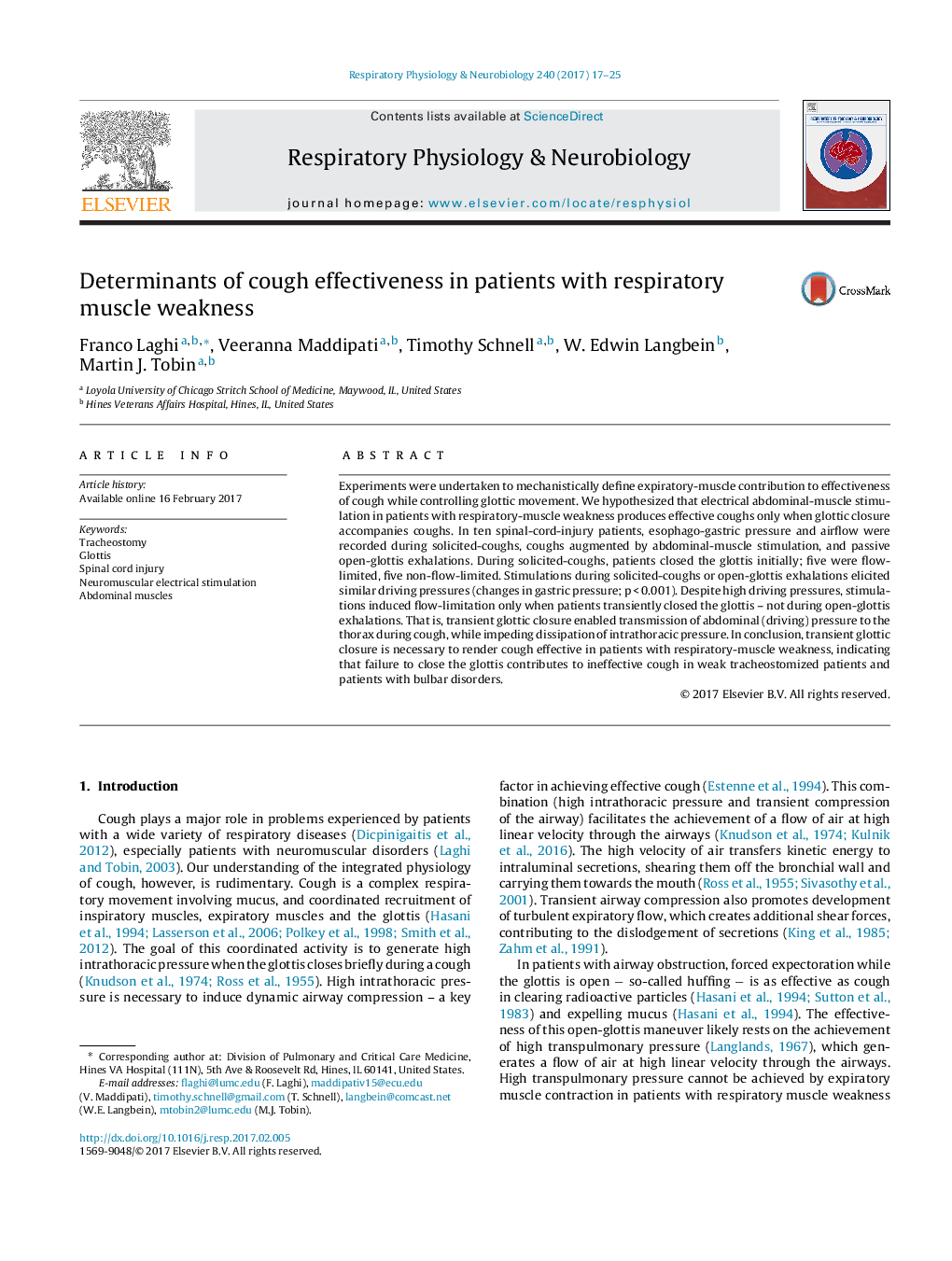| کد مقاله | کد نشریه | سال انتشار | مقاله انگلیسی | نسخه تمام متن |
|---|---|---|---|---|
| 5594079 | 1571290 | 2017 | 9 صفحه PDF | دانلود رایگان |
عنوان انگلیسی مقاله ISI
Determinants of cough effectiveness in patients with respiratory muscle weakness
ترجمه فارسی عنوان
عوامل موثر بر سرفه در بیماران مبتلا به ضعف عضلات تنفسی
دانلود مقاله + سفارش ترجمه
دانلود مقاله ISI انگلیسی
رایگان برای ایرانیان
کلمات کلیدی
موضوعات مرتبط
علوم زیستی و بیوفناوری
بیوشیمی، ژنتیک و زیست شناسی مولکولی
فیزیولوژی
چکیده انگلیسی
Experiments were undertaken to mechanistically define expiratory-muscle contribution to effectiveness of cough while controlling glottic movement. We hypothesized that electrical abdominal-muscle stimulation in patients with respiratory-muscle weakness produces effective coughs only when glottic closure accompanies coughs. In ten spinal-cord-injury patients, esophago-gastric pressure and airflow were recorded during solicited-coughs, coughs augmented by abdominal-muscle stimulation, and passive open-glottis exhalations. During solicited-coughs, patients closed the glottis initially; five were flow-limited, five non-flow-limited. Stimulations during solicited-coughs or open-glottis exhalations elicited similar driving pressures (changes in gastric pressure; p < 0.001). Despite high driving pressures, stimulations induced flow-limitation only when patients transiently closed the glottis - not during open-glottis exhalations. That is, transient glottic closure enabled transmission of abdominal (driving) pressure to the thorax during cough, while impeding dissipation of intrathoracic pressure. In conclusion, transient glottic closure is necessary to render cough effective in patients with respiratory-muscle weakness, indicating that failure to close the glottis contributes to ineffective cough in weak tracheostomized patients and patients with bulbar disorders.
ناشر
Database: Elsevier - ScienceDirect (ساینس دایرکت)
Journal: Respiratory Physiology & Neurobiology - Volume 240, June 2017, Pages 17-25
Journal: Respiratory Physiology & Neurobiology - Volume 240, June 2017, Pages 17-25
نویسندگان
Franco Laghi, Veeranna Maddipati, Timothy Schnell, W. Edwin Langbein, Martin J. Tobin,
